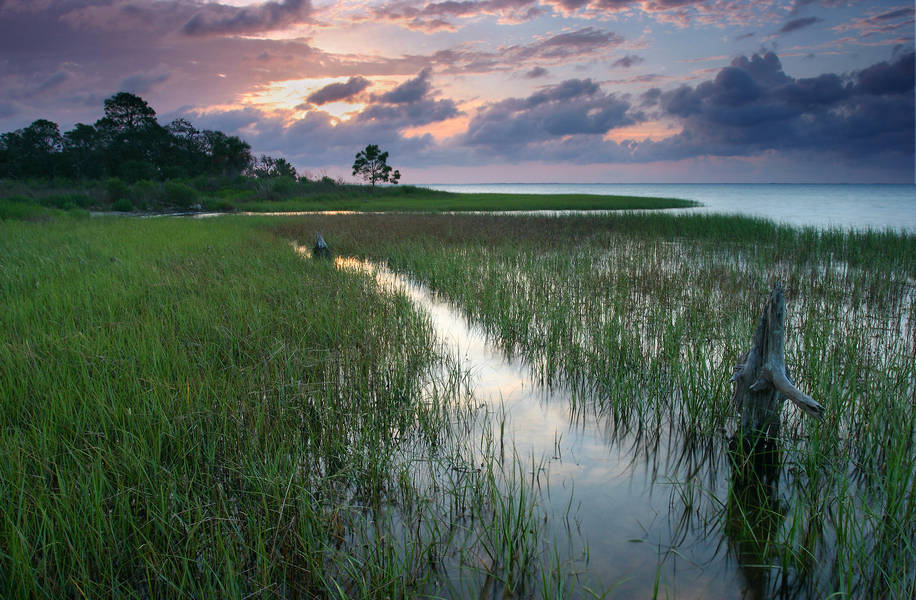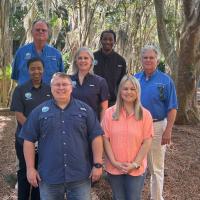About Florida’s Deepwater Horizon Program
On April 20, 2010, the offshore oil drilling platform Deepwater Horizon exploded in the Gulf of Mexico, causing the largest oil spill in U.S. history. As a result of the disaster, three funding streams were created: compensation for injury/damage under the Natural Resource Damage Assessment (NRDA); civil penalties administered under the RESTORE Act; and a criminal settlement administered by the National Fish and Wildlife Foundation through its Gulf Environmental Benefits Fund. Each of the funding streams is tied to a particular type of injury or violation, and each one is administered differently.
The state of Florida has also settled with a non-operating investor, MOEX, and utilized those funds for several priority projects.
Deepwater Horizon Projects in Florida
View the map of Deepwater Horizon Projects funded in the state of Florida.
Deepwater Horizon Settlement
On April 4, 2016, the consent decree between BP, the United States and the five Gulf Coast states was approved and entered into by the court. The consent decree requires BP to pay a total of $18.5 billion, which is broken down between Clean Water Act civil penalties, natural resource damage claims, and economic claims across the gulf states. The state of Florida will receive at least $3.25 billion. Please see links below for more information.
Additional information on other Deepwater Horizon Settlements
How to Apply
Previously, proposals were accepted on a continuous basis for funding consideration under the RESTORE Act's Council-Selected Restoration Component (Bucket 2), Natural Resource Damage Assessment Restoration, and the National Fish and Wildlife Foundation's Gulf Environmental Benefit Fund. Starting in 2022, specific requests for project proposals will be announced as funding becomes available.
Submitting Project Proposals
Solicitation notifications will be sent via Deepwater Horizon updates email listserv and posted on the Deepwater Horizon Latest Updates page. Enter your email address in the “Subscribe” box to receive notifications. Each solicitation will provide submission details, deadlines and eligibility.
Deepwater Horizon Florida portal
Previously submitted proposals may be referenced when responding to a specific solicitation by indicating the Project ID number.
Natural Resource Damage Assessment
The Oil Pollution Act authorizes certain state and federal agencies to evaluate the impacts of the Deepwater Horizon oil spill. This legal process, known as Natural Resource Damage Assessment (NRDA), determines the type and amount of restoration needed to compensate the public for damages caused by the oil spill.
The department is playing a key role in Florida's restoration along with the Florida Fish and Wildlife Conservation Commission as co-trustees on the Deepwater Horizon Trustee Council.
RESTORE Act
The RESTORE Act, which was passed by Congress on June 29, 2012, and signed into law on July 6, 2012, by the president, provides a vehicle for Clean Water Act civil and administrative penalties from the Deepwater Horizon oil spill. The act calls for a regional approach to restoring the long-term health of the valuable natural ecosystems and economy of the Gulf Coast region.
The RESTORE Act dedicates 80 percent of civil and administrative penalties paid under the Clean Water Act, after the date of enactment, by responsible parties in connection with the Deepwater Horizon oil spill to the Gulf Coast Restoration Trust Fund for ecosystem restoration, economic recovery, and tourism promotion in the Gulf Coast region. The DEP Secretary serves as the governor’s designee to represent Florida on the Gulf Coast Ecosystem Restoration Council, which is responsible for implementing the Comprehensive Plan: Restoring the Gulf Coast's Ecosystem and Economy.
National Fish and Wildlife Foundation
The National Fish and Wildlife Foundation established the Gulf Environmental Benefit Fund to administer funds arising from plea agreements that resolve the criminal cases against BP and Transocean. The Florida Fish and Wildlife Conservation Commission and the department work directly with the National Fish and Wildlife Foundation to identify projects for the state of Florida in consultation with the U.S. Fish and Wildlife Service and the National Oceanic and Atmospheric Administration.
Contact/Updates
Please contact us for more information at DeepwaterHorizon@FloridaDEP.gov.
Click the Subscribe link below to receive updates on Natural Resource Damage Assessment (NRDA), RESTORE Council-Selected Restoration Component, and National Fish and Wildlife Foundation's Gulf Environmental Benefit Fund (GEBF) restoration activities and funding opportunities in Florida.



